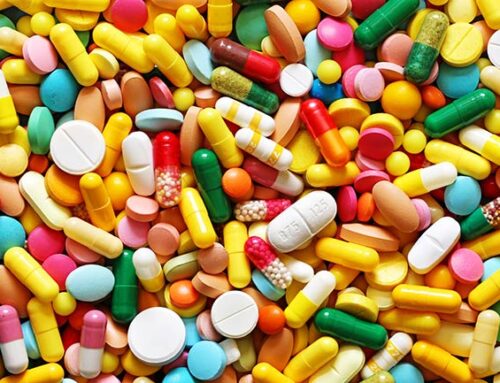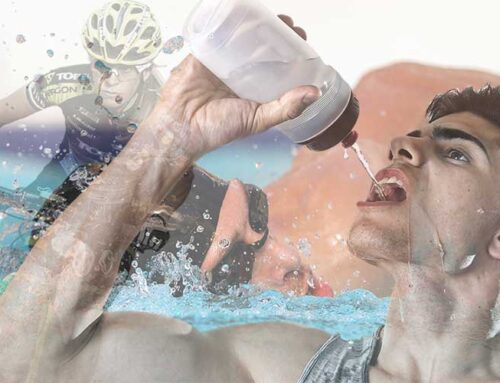It is an often repeated, yet mistaken, axiom cited by nutrition experts and athletes that only carbs or calories provide energy. But do electrolytes give you energy? A few years ago, the U.S. Food and Drug Administration considered only allowing foods and drinks with calories to make an energy claim. This misunderstanding is due, in large part, to a very narrow and even misleading definition of energy. While it is fully recognized that calories are essential for energy, it is not necessarily true that they are the only element essential to active energy or even that they are the most common missing link that causes low energy levels or “bonk.” Consider the following: Do people who consume the most calories typically have the highest energy?
Energy for the Body
You could have the best electrical hook up for a house, but with faulty or incomplete wiring, it is impossible to access that energy. Heat, fuel, and oxygen are all elements essential for fire. If any one of these elements is lacking, fire is not possible. Energy for the body is much the same, fully dependent on various elements to create active energy. Calories are only one essential component.
The human body has been compared to a finely tuned engine. When it comes to understanding how your body uses energy, if carbs or calories are comparable to the fuel in the gas tank, then electrolytes are comparable to the spark plugs. While it is true that if you run out of gas you will not be able to go any further, it is also true that if you have premium spark plugs your car can have better “pick up” and/or even better gas mileage. And if you don’t have spark plugs at all, you will not even be able to start the engine.
Interesting Article: Many Medications Can Induce Electrolyte Deficiency
Electrolytes as Source of Energy
Having the proper balance of electrolytes contributes to energy on various levels within the body. First, they are essential carriers of energy. One of the main functions of electrolytes within the body is that they act as energy conductors. Second, they are essential converters of energy. Electrolytes are essential catalysts for numerous energy reactions throughout the body. Without electrolytes, the body is not able to convert dormant energy into active energy, resulting in low energy levels. Third, the movement of electrolytes is a basic energy source used by the body. For example, the energy stored in a battery, is created solely by the movement of charged ions that create electrical energy. Here is some food for thought for those who claim that calories are the body’s only energy source—how many calories are there in a battery?
Related article: Electrolytes are essential for life, health, and peak performance
Electrolytes’ Role in the Body’s Movements
The body needs to maintain the proper balance of electrolytes, which it constantly moves and shuffles for specific purposes. In various energy reactions within the body, one electrolyte will act as an “on” switch while another acts as the “off” switch. Some electrolytes aid acceleration while others act as the brakes. Both acceleration and braking consume energy and are absolutely essential. But if your muscles are always accelerating or braking, you can experience low energy levels, muscle spasms, or cramps.
For clarification, an essential nutrient, as it’s used by nutrition experts and cited in medical or health textbooks, means that the particular nutrient is needed by the body and cannot be replaced by any other nutrient. When it is stated that a certain nutrient is essential for a particular purpose, it means that nothing else can replace that nutrient for that particular purpose within the body. For example, magnesium is an essential electrolyte that is required for energy conversion within the body. As such, no other electrolyte, mineral, vitamin, nutrient—not even carbs—can replace it. In other words, energy conversion will not occur without sufficient magnesium.
You can store dynamite, a powerful explosive, but it doesn’t necessarily mean that you can transfer all of that energy to operate a blender or turn on the television set. No one wants extra dormant energy, i.e., fat in his or her body. When we say that we want or need more energy, we almost always mean that we want more properly controlled active energy, which is dependent on the proper balance of calories and nutrients within a healthy body.
Magnesium One of the Most Overlooked Electrolytes
Glycogen, which is what most people associate with energy within the body, goes through the ATP (Adenosine Triphosphate) energy channel in order to become active energy. What most people do not know is that ATP is fully dependent on magnesium. In fact, most of the ATP within the body exists as a compound with magnesium stated as MgATP. Magnesium happens to be one of the most overlooked essential electrolytes.
So, the next time you’re explaining to a friend that you use electrolytes because a proper balance of electrolytes gives you energy and your friend tries to tell you that only carbs give energy, ask them, “Do the people who consume the most calories have the most energy?” When it comes to overall health, it’s definitely a question worth considering.
Sources:
- American Medical Association, AMA Encyclopedia of Medicine, Random House, New York, NY, 1989, pp. 396, 605-606.
- Seelig, MS. The MG Factor. New York, NY, 2003, pp.11-13.
- Van De Graaf KM and Fox SI. Concepts of Human Anatomy and Physiology, WCB McGraw-Hill, Boston MA, 1999, pp.480-488.
- Higdon, J. Magnesium. Linus Pauling Institute Micronutrient Research Center, University of Oregon. https://lpi.oregonstate.edu/mic/minerals/magnesium.
- Institute of Medicine. Recommended Dietary Allowances, 10 Edition, National Academy Press, Washington, DC, 1989, pp. 187-194.
*These statements have not been evaluated by the U.S. Food and Drug Administration. This product is not intended to diagnose, treat, cure, or prevent any disease.
The studies and research cited in this article is for information purposes only. It is not an endorsement of elete nor any other of MRI’s products.





